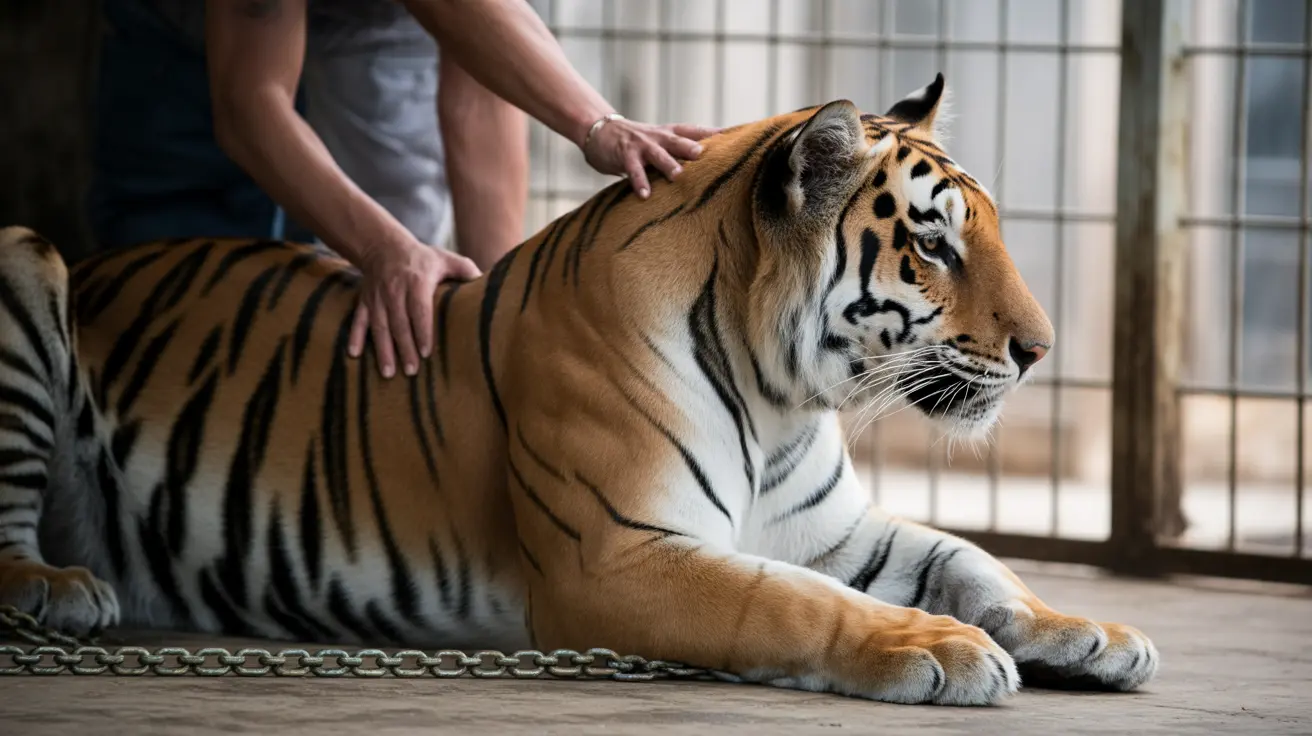Animal welfare advocates are intensifying calls for Thailand to implement strict regulations against tiger selfie tourism and other forms of exotic animal exploitation in the country's zoos. The practice, which has become increasingly popular on social media, raises serious concerns about animal welfare and the ethical treatment of wildlife in captivity.
The controversial trend of taking photos with tigers and other exotic animals has drawn criticism from animal rights organizations who point out the severe physical and psychological impact on these magnificent creatures. Many of these animals are subjected to harsh conditions and unnatural environments solely for tourist entertainment.
The Reality Behind Wildlife Entertainment in Thai Zoos
The growing demand for exotic animal encounters has created a troubling ecosystem where animal welfare often takes a backseat to profit. Tigers, traditionally solitary and territorial animals, are forced into constant close contact with humans, creating stressful conditions that go against their natural behaviors.
Current Legal Framework and Enforcement Challenges
While Thailand's Cruelty Prevention and Welfare of Animal Act (2014) provides some protections for captive animals, enforcement remains a significant challenge. The law includes provisions against animal cruelty, but monitoring and implementation have proven difficult, particularly in tourist-heavy areas where animal attractions generate substantial revenue.
Impact on Animal Health and Well-being
The practice of using exotic animals for entertainment and photos has serious consequences for their physical and mental health. Tigers and other wildlife in these facilities often exhibit signs of distress, including:
- Abnormal behavioral patterns
- Physical health issues from improper care
- Psychological trauma from constant human interaction
- Restricted movement due to confinement
Ethical Wildlife Tourism Alternatives
Responsible wildlife travel in Asia is gaining momentum as tourists become more aware of animal welfare issues. Several observation-only sanctuaries now offer ethical alternatives where visitors can appreciate wildlife from a respectful distance, supporting conservation efforts without compromising animal welfare.
Steps Toward Change
Animal rights advocates in Thailand are working to promote better conditions for captive wildlife through various initiatives:
- Pushing for stricter enforcement of existing laws
- Educating tourists about the impact of their choices
- Supporting ethical wildlife tourism alternatives
- Monitoring and reporting violations at facilities
Frequently Asked Questions
Why is taking selfies with tigers and other exotic animals in Thai zoos harmful to the animals?
These interactions cause severe physical and psychological suffering to the animals. Many are drugged, separated from their mothers, chained, or forced to perform, resulting in stress, injury, anxiety, and trauma.
How can tourists avoid supporting animal cruelty when visiting zoos or wildlife attractions in Thailand?
Visitors should avoid direct contact, selfies, or performances with exotic animals. Instead, choose observation-only sanctuaries and support ethical wildlife tourism initiatives that prioritize animal welfare over entertainment.
What role do animal rights groups and petitions play in improving the treatment of exotic animals in Thai tourism?
Animal rights organizations are instrumental in raising awareness, reporting abuses, and pressuring authorities for stronger enforcement of welfare laws. Their advocacy work, including petitions and campaigns, contributes to gradual policy improvements and better conditions for captive animals.
Moving Forward
The path to ending exploitative practices in Thai zoos requires continued pressure from both domestic and international advocates, along with increased awareness among tourists. By choosing ethical wildlife experiences and supporting facilities that prioritize animal welfare, visitors can help create positive change for captive wildlife in Thailand.
Ultimately, the goal is to transform Thailand's wildlife tourism industry into one that respects and protects animals while still offering meaningful experiences for visitors. This transition will require ongoing commitment from all stakeholders, including government authorities, tourism operators, and conscious travelers.






